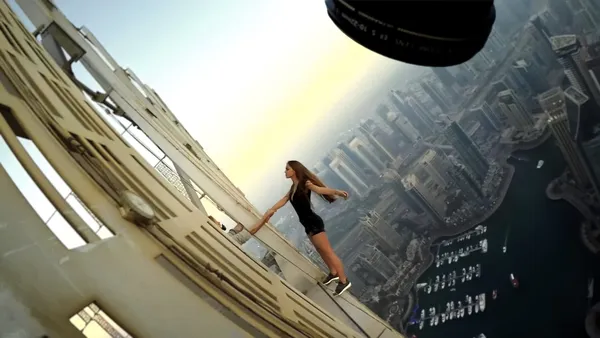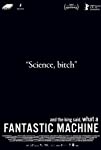Eye For Film >> Movies >> Fantastic Machine (2023) Film Review
Fantastic Machine
Reviewed by: Amber Wilkinson

It is highly satisfying that this feature film about the history and cultural impact of photography - and, by extension, film and television - should be such a lovely example of the Reithian principles to “inform, educate and entertain”.
Starting from the very first known image - which took 10 hours of exposure to capture - Axel Danielson and Maximilien Van Aertryck take us on a whistle-stop tour of what came after, passing by way of everyone from the Lumiere brothers to Ted Turner until we reach the modern age of the social media algorithm and 300 million photos a day.

There’s a treasure trove of archive footage expertly edited together with modern snippets from the internet by Mikel Cee Karlson. The directors aren’t just interested in offering up a cultural kaleidoscope, they also want to interrogate the material, through both juxtaposition and thoughtful narration from Van Aertryck that is likely to spark plenty of post-screening chat.
Chief among the topics of conversation may well be the way that imagery can be used to manipulate the way we feel. While the effect of this can be innocuous, for example in the case of televisual camera trickery like green screen, which is used to entertain - Van Aertryck and Danielson also show its more insidious side.
In one batch of archive footage, for example, we see Nazi propagandist Leni Riefenstahl apparently thrilled to be talking about her use of the camera when capturing Hitler. Her description of the swastika flags having a “festive quality”, is made all the more chilling by the fact the interview was taken in 1993. The weight of this is further emphasised by the film then offering a counterpoint snapshot from the archive in which British filmmakers talk about the importance of documenting the horrors they found in the PoW camps - shown along with some of the footage - so that the evidence could not be disputed.
This is the most searing moment in a film which is often playful even when making a serious point. Images, for example, of various leaders riding horses or catching fish topless are made to look absurd when collected together but also raise questions around the presentations of politicians in the modern era. Even when the film is being humorous - exploring, for example, viral videos - it is constantly touching base with more serious concerns. Among these is the way that viral content has led many to commodify their own lives in ways that may not necessarily be good for their health - whether that means hanging off buildings in ways that could prove deadly or finding themselves targeted by police because of online trolls.
This is a film that is as much about what the intention of the portrayal that lies behind the image is as the photograph or film itself. And, the directors are provocative to the last, as they consider the images we sent on the Voyager Golden Record deep space mission - itself already the subject of excellent documentary The Farthest. In knowing what motivations lay behind the image selection, we see the human psychological drivers and implications when it comes to imagery that no alien life form could intimate from the pictures themselves.
Reviewed on: 15 Mar 2023

















